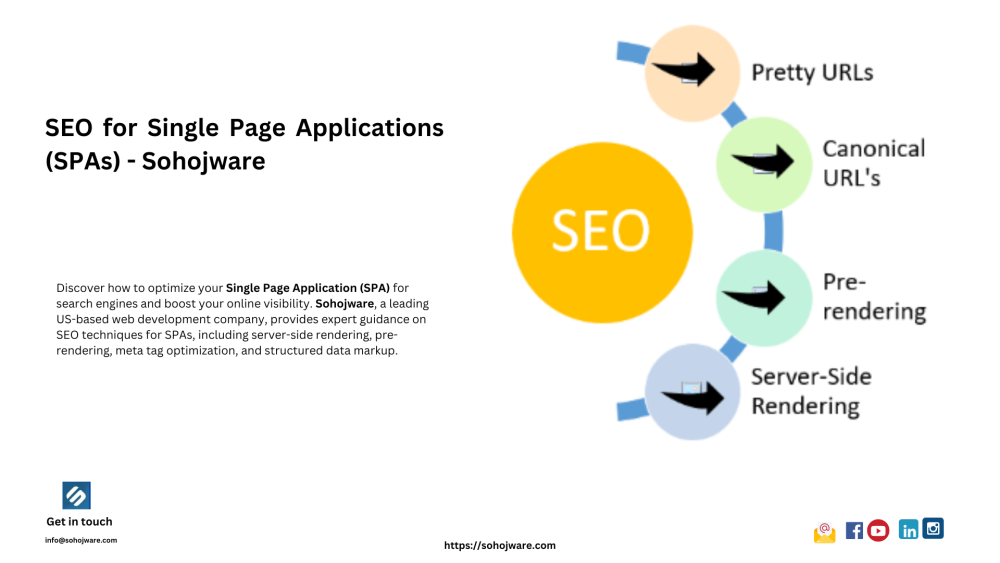Google SEO and HTTPS
In today's digital landscape, Google SEO and HTTPS have become increasingly intertwined.
Ensuring your website is secure with HTTPS encryption is more than just a measure for protecting user data—it's now a critical factor for improving your SEO rankings and overall website credibility.
But how exactly does HTTPS influence Google’s SEO evaluation, and why is it a ranking factor?
Let’s dive into the essentials of HTTPS, its role in SEO, and how it can benefit your website traffic and user perception.
Why is HTTPS Essential for Google SEO Rankings?
HTTPS stands for HyperText Transfer Protocol Secure, and it’s an upgraded version of the standard HTTP protocol.
The "S" in HTTPS refers to HTTPS security, which uses SSL certificates to encrypt the data being transferred between a user's browser and your website.
This added layer of protection not only ensures secure connections but also enhances user trust and website credibility—key elements for boosting Google ranking factors.
Why is HTTPS so important for SEO rankings? Google's search algorithms have begun prioritizing secure websites, giving a ranking advantage to sites with HTTPS encryption.
Without it, your site may be flagged as "insecure" by browsers, leading to a loss in user satisfaction and website traffic.
Understanding HTTPS and Its Role in SEO
What is HTTPS?
HTTPS is a security protocol that ensures any information shared between users and your website is encrypted. This is particularly important for protecting user data such as login credentials, payment details, and personal information.
Beyond cybersecurity, HTTPS encryption signals to Google SEO that your site is safe for users, positively affecting your SEO ranking factor.
HTTP vs. HTTPS: Key Differences and Implications for SEO
The primary difference between HTTP and HTTPS is the level of security. While HTTP does not offer encryption, HTTPS uses a security protocol to create secure connections that protect user data.
For websites aiming to rank well in search engines, switching from HTTP to HTTPS is no longer optional. It's a requirement for ensuring better page performance, improving page load speed, and meeting Google's SEO standards.
Google considers HTTPS a ranking factor because it ensures a safer browsing experience. As the digital world shifts toward prioritizing user trust and site security, HTTPS becomes essential for Google’s SEO evaluation criteria.
How Does HTTPS Work and Its Role in Website Security?
At its core, HTTPS uses SSL/TLS certificates to encrypt data sent between your website and its visitors. This encrypted connection is vital for ensuring the safety of user data and preventing malicious activities like data theft or hacking.
Furthermore, HTTPS reduces the chances of mixed content errors, which can occur when some elements of a site (like images or scripts) are loaded over an insecure HTTP connection.
By migrating to HTTPS, you ensure that secure connections are maintained throughout the user’s visit, resulting in a safer browsing experience. This also plays a crucial role in the growing significance of HTTPS in Google SEO.
As search engines and users become more concerned with privacy and security, HTTPS helps secure your site’s future performance in search rankings.
Details Of Google SEO and HTTPS: Why HTTPS is Crucial for SEO
The Importance of HTTPS in Google SEO Rankings
When it comes to Google SEO, HTTPS is no longer just a security protocol—it's a key ranking factor. HTTPS enables secure connections between the user and the website, improving website credibility and boosting trust in the website.
This is a critical component of Google’s SEO evaluation criteria, which now includes HTTPS as a ranking signal. The shift toward HTTPS security helps protect user data and ensures privacy, which is increasingly important for search engine rankings.
Google SEO and HTTPS: How Secure Websites Gain a Competitive Edge
As Google’s SEO algorithms evolve, the growing significance of HTTPS cannot be overstated. Websites that switch to HTTPS benefit not only from secure connections but also from enhanced user trust, leading to improved engagement and website traffic.
Google views secure sites as more trustworthy, which can lead to better SEO ranking factors and higher page load speeds—all of which result in a seamless user experience.
How HTTPS Affects SEO Rankings: A Google Perspective
HTTPS plays a crucial role in Google ranking factors, especially in terms of page experience and site performance. By encrypting user data and ensuring secure connections, HTTPS helps prevent cyber threats, ensuring that user satisfaction remains high.
Sites with HTTPS enjoy a competitive edge as they rank higher due to Google's SEO evaluation criteria.
Does Google Still Prioritize HTTPS for SEO?
Yes, HTTPS security remains a critical component of Google’s SEO algorithms. In fact, Google continues to prioritize secure websites, viewing them as more trustworthy, which directly impacts site performance and traffic reports.
As HTTPS expires, it is essential for websites to regularly renew their SSL certificates to maintain Google ranking factors and continue providing a safe browsing experience.
The Impact of HTTPS on User Trust and Website Credibility
Enhanced User Trust: Why HTTPS Improves Website Credibility
Switching to HTTPS isn’t just about Google SEO—it’s also about building enhanced user trust. Secure sites protect user data, which is essential for modern users who are increasingly concerned about their privacy.
HTTPS also plays a role in reducing mixed content errors, helping websites avoid limited browser warnings that can damage website credibility. By ensuring secure connections, HTTPS makes users feel safe, boosting engagement and user satisfaction.
HTTPS and User Engagement: Building Trust for Better SEO
As more users become aware of security risks, HTTPS is becoming a fundamental factor in user perception. Websites with HTTPS encryption show a commitment to cybersecurity, enhancing the user experience and building a sense of trust.
Google rewards this by improving rankings for secure sites, leading to increased website traffic and more engaged visitors. When users feel safe, they are more likely to interact with your content, improving your site's SEO ranking factor.
How HTTPS Increases Website Credibility for Better Google SEO
For websites aiming to build a strong reputation, HTTPS security is an essential tool. Not only does it secure user data, but it also builds website credibility, making your site more attractive to both users and search engines.
Google’s SEO evaluation criteria prioritize secure websites, which means that using HTTPS can directly impact your SEO ranking factor. Whether you’re operating in another country or serving local clients, HTTPS ensures that your website remains competitive in global search results.
The Google Ranking Factor: HTTPS and SEO Performance
When it comes to improving your website's visibility and boosting your Google SEO, one of the most important elements is HTTPS.
Not only does it secure your website, but it also plays a critical role in SEO ranking factors that directly influence your search engine performance.
Here’s a breakdown of why HTTPS security is so crucial for SEO.
HTTPS as a Google Ranking Factor: What You Need to Know
For years, Google's SEO evaluation criteria have included HTTPS as an important ranking factor. This means that websites using HTTPS encryption are prioritized over those using HTTP.
HTTPS ensures that all communications between a user's browser and your site are encrypted, which is essential for secure connections and user data protection.
When Google introduced HTTPS as a ranking factor, it was part of a broader initiative to make the web a safer place. Secure connections, powered by SSL certificates, help prevent data breaches and increase user satisfaction, as visitors feel more confident navigating your website.
In fact, secure sites are often perceived as more trustworthy, which improves user perception and engagement.
Why HTTPS is a Ranking Signal in Google SEO Algorithms
Google's emphasis on HTTPS encryption aligns with their goal of enhancing the user experience. Websites that fail to adopt HTTPS risk losing valuable SEO rankings because Google’s SEO algorithms give preference to secure sites.
The reason for this is simple: sites that protect user data and provide seamless user experiences are more likely to retain visitors, which in turn improves traffic and website performance.
Additionally, having an HTTPS connection is a signal of credibility. It assures users that their information is safe, enhancing your website credibility and potentially boosting conversions.
Google is not just concerned with ranking websites based on content quality—page experience and security are equally important. This means HTTPS not only helps you rank higher but also builds trust with your brandname customers.
How HTTPS Can Improve Search Engine Rankings and Visibility
Switching to HTTPS is one of the best best practices you can follow for improving SEO. The growing significance of HTTPS in SEO has been evident in recent updates to Google’s algorithm, where secure websites are favored in search results.
Not only does HTTPS provide a direct SEO ranking factor, but it also improves your site's page load speed, another important ranking factor in Google’s SEO evaluation.
By ensuring that all content on your website is served securely via HTTPS, you avoid issues like mixed content errors, which can prevent your site from achieving optimal performance and negatively affect your SEO ranking factor.
Furthermore, HTTPS helps to prevent limited browser warnings, ensuring that visitors aren’t deterred by security alerts that can undermine user satisfaction and website traffic.
In summary, adopting HTTPS is essential for improving your site’s visibility and performance in Google’s search results. It’s not just about compliance with modern security protocol standards; it’s about aligning with Google’s focus on user experience and page experience.
By implementing HTTPS, you ensure that your website is secure, your visitors' data is protected, and your rankings improve, helping you stay ahead in the digital landscape.
Migrating to HTTPS: Best Practices for Google SEO Success
When it comes to improving Google’s SEO and boosting website traffic, switching to HTTPS is essential. Not only does it ensure secure connections and protect user data, but it also helps in securing your site’s SEO ranking factor.
Migrating to HTTPS is a process that must be done with care to avoid issues like mixed content errors or a drop in SEO rankings. Here’s a step-by-step guide on how to migrate to HTTPS, while ensuring you’re aligned with best practices for Google’s SEO.
How to Switch to HTTPS: A Step-by-Step Guide for Google SEO
Switching your website to HTTPS is a significant change that can greatly impact your site performance and page experience.
Here are the key steps you need to follow for a smooth transition:
Acquire & Install an SSL Certificate for Google SEO
The first step in migrating to HTTPS is acquiring an SSL certificate. This is a security protocol that encrypts user data between your website and its visitors, ensuring HTTPS security.
The SSL certificate is what powers HTTPS encryption, allowing Google to treat your site as a secure connection, which can improve your SEO ranking factor.
Activate Your SSL Certificate
Once you’ve acquired your SSL certificate, it’s time to activate it. This is crucial for establishing secure connections. Once activated, your website will be marked as secure in browsers, increasing user satisfaction and website credibility.
This move is critical for Google’s SEO evaluation, as Google has made it clear that HTTPS encryption is a ranking factor.
Redirect from HTTP to HTTPS: Google SEO Considerations
After setting up your SSL certificate, the next step is to redirect from HTTP to HTTPS. This step ensures that visitors and search engines are directed to the HTTPS version of your site.
Make sure your Google ranking factor is not harmed by setting up proper 301 redirects to avoid losing valuable website traffic.
Google values secure connections, so ensuring that all your pages are redirected to HTTPS is essential for Google’s SEO.
Update Your Internal Links for Google SEO and HTTPS
Internal links play a vital role in your site’s SEO ranking factor, so it's important to update all of them from HTTP to HTTPS.
This ensures that there are no issues with mixed content errors and that all your content is linked securely, helping to improve site performance and page load speed.
This also impacts user satisfaction, as no warnings about insecure content will be shown.
Verify the HTTPS Version in Google Search Console (GSC)
Once your site is properly configured to HTTPS, it’s important to verify the HTTPS version in Google Search Console (GSC). This allows Google to recognize your website’s secure version, helping to boost your rankings.
You can also monitor traffic reports and track any site performance issues related to the migration.
Monitor Your SSL Certificate for SEO Success
Regular monitoring of your SSL certificate is important to ensure it doesn’t expire and continue to provide the level of security required by Google. Keeping your SSL certificate active and in good standing helps maintain secure connections for both visitors and search engines.
This contributes to a seamless user experience and can prevent cyber security threats from affecting your SEO.
Security Benefits of HTTPS for Google SEO and User Privacy
Securing User Data with HTTPS: The Importance for SEO
HTTPS plays a pivotal role in protecting user data on your website, and it is crucial for securing connections between your site and its visitors.
In the era of increasing cyber threats, using HTTPS ensures that sensitive information—such as login credentials, personal data, and payment details—is encrypted.
This HTTPS encryption not only safeguards your users' privacy but also significantly boosts your website’s credibility.
Google’s SEO evaluation criteria heavily favor sites that prioritize security, making HTTPS a must for maintaining high rankings in Google’s SEO.
HTTPS Encryption for Privacy: What Google SEO Requires
When Google evaluates SEO ranking factors, it considers your site’s ability to protect user data. HTTPS encryption is a vital part of this. By implementing HTTPS, you are ensuring that user data remains private and secure, especially during transactions or login processes.
Google rewards sites that offer a secure browsing experience by increasing their rankings, contributing to website credibility. Websites without HTTPS can be flagged by browsers with warning signs, which can harm user perception and drive potential customers away.
How HTTPS Protects Against Security Risks and Benefits Google SEO
Security is a top priority for both Google and website users. By implementing HTTPS, you enhance your site's security protocol, reducing the risks of data breaches and attacks.
HTTPS encryption ensures secure connections, protecting your website from threats like man-in-the-middle attacks, malware, and phishing.
From an SEO standpoint, Google recognizes HTTPS as a ranking factor, and sites that prioritize security are often rewarded with better visibility in search results.
A secure website not only helps protect user data but also improves user satisfaction, leading to improved site performance and traffic reports.
Tracking the SEO Benefits of HTTPS
Measuring HTTPS SEO Performance: Tools and Metrics
Once you’ve migrated to HTTPS, it's essential to measure its impact on your website’s SEO ranking factor.
Tracking your site performance with tools like Google Analytics and Google Search Console will give you insights into how HTTPS affects key metrics such as page load speed, website traffic, and user satisfaction.
These tools can also help identify mixed content errors that may arise during the transition to HTTPS, which could negatively impact your SEO rankings.
Regularly monitor the HTTPS version of your website to ensure that it is functioning as expected and delivering a seamless user experience.
How to Track HTTPS Implementation and Its Effect on Google SEO
Tracking HTTPS implementation involves measuring key performance indicators such as page load speed, which is a critical SEO ranking factor.
Google’s algorithms prioritize fast-loading pages, and HTTPS can enhance site performance, ensuring that your site meets the latest standards for speed and security.
Additionally, traffic reports will show you how your site's rankings improve after the HTTPS switch, contributing to higher visibility and more visits.
If you notice mixed content errors or limited browser warnings, it’s crucial to fix these issues promptly to maintain a smooth user experience and avoid ranking penalties.
Monitoring HTTPS in Google Search Console for SEO Insights
Google Search Console (GSC) is an invaluable tool for monitoring the performance of your HTTPS-secured website. By verifying your HTTPS version in GSC, you can ensure that Google indexes your site correctly.
Tracking how HTTPS impacts website traffic, site performance, and user satisfaction within GSC will help you measure whether your migration to HTTPS has had the desired effect on your SEO rankings.
If issues like mixed content errors arise, GSC provides you with the necessary data to resolve them and maintain your rankings.
Mobile Optimization and HTTPS for Google SEO
HTTPS and Mobile Optimization: A Seamless User Experience for SEO
When it comes to Google SEO, HTTPS security plays a vital role in ensuring that users have a seamless user experience across all devices. Mobile optimization is more important than ever for improving website traffic and overall SEO performance.
Websites that are optimized for mobile devices, secured with HTTPS encryption, and offer a smooth user experience can achieve better rankings in Google's SEO evaluation criteria.
HTTPS ensures secure connections which are crucial for maintaining user trust and improving user perception of your site’s credibility.
For mobile users, a site secured with HTTPS will load faster and reduce potential issues with mixed content errors—common HTTPS issues that can hinder both mobile site performance and SEO ranking factor.
The future of mobile optimization and HTTPS security is tightly linked. As mobile-first indexing becomes the norm, sites that implement HTTPS encryption will see improved page load speed, contributing to better SEO rankings.
Ensuring a seamless user experience across all devices, including mobile, is essential for meeting Google's mobile-first ranking criteria and driving traffic.
Why Mobile-Friendliness is Crucial for HTTPS and Google SEO Rankings
Mobile-friendliness, when combined with HTTPS security, directly influences SEO ranking factors.
With Google's SEO placing high importance on mobile optimization, websites that offer a responsive mobile design and secure connections through HTTPS are more likely to rank higher.
This ensures better user satisfaction and more traffic reports indicating positive engagement.
As Google prioritizes user experience across devices, ensuring that your website meets these SEO ranking factors and adheres to best practices in both mobile optimization and HTTPS security can drastically improve your website credibility and SEO performance.
Sites that prioritize secure connections and mobile-friendliness are rewarded with higher rankings, better website traffic, and enhanced user trust.
How HTTPS Enhances Mobile SEO and User Experience
The integration of HTTPS with mobile optimization isn’t just about security; it’s about improving user data protection and site performance. By ensuring HTTPS encryption is in place, mobile users will experience faster load times and reduced security warnings.
This directly influences user satisfaction, which is a key component in improving Google SEO rankings. When users feel confident that their user data is protected through HTTPS security, they are more likely to engage with the site and convert.
Moreover, HTTPS encryption also ensures that sensitive data exchanged between users and the site remains private, contributing to better cyber security. This sense of trust translates to higher engagement, making HTTPS essential for maintaining website credibility and improving rankings in mobile search results.
Future Trends: The Growing Significance of HTTPS in Google SEO
Why HTTPS is Becoming Even More Crucial for Google SEO
As we look to the future, the growing significance of HTTPS for Google SEO cannot be overstated. Websites that haven’t yet transitioned to HTTPS are at risk of not only ranking lower but also being flagged as insecure by browsers, leading to limited browser warnings.
These security issues can affect both user satisfaction and SEO performance.
Google’s focus on website credibility and secure connections will only intensify, making HTTPS a mandatory element of your SEO strategy.
If you’re still using HTTP, transitioning to HTTPS will protect your website traffic, improve SEO ranking factors, and boost your reputation in the eyes of brandname customers.
The Future of HTTPS: Evolving SEO and Google's Perspective
The role of HTTPS in Google’s SEO continues to evolve. As security protocol becomes more stringent across the web, HTTPS will become an even more integral part of SEO ranking factors.
Google’s continued prioritization of HTTPS encryption reflects its commitment to ensuring user safety and privacy.
The future of SEO will see HTTPS security becoming an even stronger signal for rankings, alongside other factors such as page load speed and mobile optimization.
To stay ahead of the curve, it’s essential to implement HTTPS today. Websites that fail to switch to HTTPS may risk falling behind as Google refines its ranking algorithms.
Implementing best practices now ensures that your site is secure, optimized for SEO, and positioned for future success.
Staying Ahead of the Curve with HTTPS for Better Google SEO
With HTTPS becoming a more significant factor in Google’s SEO rankings, staying ahead of the curve is crucial for maintaining a competitive edge.
Websites that have already migrated to HTTPS are better positioned for the future, as Google SEO increasingly prioritizes user trust, website traffic, and cyber security.
By focusing on HTTPS security and aligning your website with Google’s SEO evaluation criteria, you ensure that your site remains secure, ranks higher, and provides a better experience for your users.
Additionally, maintaining a smooth transition to HTTPS helps prevent common HTTPS issues such as mixed content errors or site performance problems.
Practical Tips for Implementing HTTPS and Aligning with SEO Goals
As the digital landscape continues to evolve, ensuring your website is secure and optimized for Google SEO has become increasingly important.
The transition from HTTP to HTTPS is no longer optional for many websites—it’s a critical step for better SEO ranking factors and user satisfaction.
Implementing HTTPS encryption properly not only secures user data but also strengthens your site’s website credibility and improves its search engine visibility.
Here are some practical tips to help align your HTTPS implementation with your SEO goals:
-
Activate Your SSL Certificate: The first step in moving to HTTPS is obtaining and installing an SSL certificate. This is crucial for ensuring secure connections between your website and its users.
-
Redirect From HTTP to HTTPS: Implement proper redirects to ensure your users are always directed to the HTTPS version of your site. This helps maintain site performance and eliminates issues like mixed content errors.
-
Update Internal Links: Make sure all your internal links are updated to reflect the HTTPS version to avoid any potential SEO ranking factor issues and ensure a smooth user experience across all pages.
-
Monitor HTTPS and SSL Certificate: Regularly monitor your SSL certificate to ensure it’s active and secure. This helps prevent issues such as certificate expiry, which could harm your website traffic and Google’s SEO evaluation criteria.
By following these best practices, you can effectively align HTTPS encryption with your SEO strategy, ensuring that your website ranks well in search results while providing a secure, seamless user experience.
How HTTPS Supports Core Web Vitals and SEO Success
HTTPS encryption plays a pivotal role in supporting your Core Web Vitals, which are essential for Google’s SEO ranking factor.
A secure site ensures user data is encrypted, which boosts user perception and trust.
It also enhances page load speed, one of the key metrics used by Google to determine your website’s SEO ranking.
Furthermore, HTTPS security improves site performance, contributing positively to your SEO ranking factor.
Google has placed increasing emphasis on page experience, which includes both Core Web Vitals and the security protocol used by a website.
Without HTTPS encryption, your website may fail to meet these important criteria, potentially leading to a drop in rankings.
Importance of Page Load Speed and HTTPS for Google SEO Rankings
In today’s digital world, page load speed is one of the most critical factors influencing Google’s SEO ranking criteria. A slow-loading website not only frustrates users but also negatively impacts your site performance and user satisfaction.
Implementing HTTPS encryption can significantly improve your page load speed by streamlining the security process and reducing the chances of delays.
Additionally, HTTPS security ensures that there are no interruptions in data transmission, providing a faster, more reliable user experience.
Websites that prioritize HTTPS encryption tend to perform better in Google’s SEO evaluation criteria because they offer a secure and fast browsing experience, which is essential for maintaining website credibility and increasing website traffic.
The Evolution of HTTPS: From Security Protocol to SEO Ranking Factor
HTTPS has evolved significantly from being a simple security protocol used to protect user data to becoming a fundamental element in Google’s SEO evaluation criteria.
Websites that implement HTTPS encryption benefit from a secure connection that not only protects sensitive information but also boosts user perception and trust.
The transition from HTTP to HTTPS has become increasingly important, and Google has made it clear that HTTPS is a ranking factor.
Websites that are not secured with HTTPS may experience limitations in their site performance, as Google prioritizes secure websites in its search rankings.
Adopting HTTPS encryption is no longer just about security; it’s an essential part of a comprehensive SEO strategy.
Why HTTPS is Still a Ranking Factor in Google SEO
Despite some initial skepticism, HTTPS encryption remains a vital component of Google’s ranking system.
Websites that are secured with HTTPS tend to perform better in Google SEO because they align with Google’s SEO evaluation criteria, which now prioritize user experience.
A site with HTTPS encryption offers a more secure browsing environment, which is highly valued by both users and search engines.
In addition, HTTPS ranking factors continue to grow in importance as Google increasingly focuses on page experience and site performance.
Websites that fail to adopt HTTPS encryption risk being penalized in search engine visibility, leading to decreased traffic and potentially lower rankings.
Ensuring a Smooth HTTPS Transition for Google SEO Success
Transitioning to HTTPS can sometimes be challenging, but following best practices can ensure a smooth shift without negatively affecting your site performance.
Key steps include ensuring that all internal links point to the HTTPS version of your site, setting up proper 301 redirects from HTTP to HTTPS, and verifying the HTTPS version in Google Search Console.
Regular monitoring of your SSL certificate is also essential to avoid issues like expired certificates, which could harm your website traffic and Google’s SEO ranking.
By carefully planning the transition to HTTPS encryption, businesses can ensure that their websites remain secure, perform well, and retain their search engine visibility, leading to better user satisfaction and sustained success in the digital marketplace.
The Future of Google SEO and HTTPS
Why HTTPS is a Must-Have for Google SEO in the Future
As Google’s SEO continues to evolve, HTTPS will remain an integral part of the ranking criteria.
Websites that adopt HTTPS encryption will not only be more secure but will also enjoy higher SEO rankings and increased website traffic.
The growing significance of HTTPS as a ranking factor ensures that businesses stay competitive in a digital landscape where security and trust are paramount.
Final Thoughts on Google SEO and HTTPS
The integration of HTTPS encryption is essential for maintaining a secure, trustworthy website that aligns with Google’s SEO requirements.
Not only does HTTPS security safeguard user data and enhance user satisfaction, but it also directly contributes to better SEO ranking factors, ensuring your website remains competitive in search results.
As HTTPS’s role continues to grow in importance, its impact on page experience and search engine visibility cannot be overstated.
For businesses, particularly those in highly competitive markets, adopting HTTPS encryption is not just a recommendation—it’s a necessity.
By following best practices and understanding the significance of HTTPS security, your website will be better positioned for success in the evolving digital landscape.




